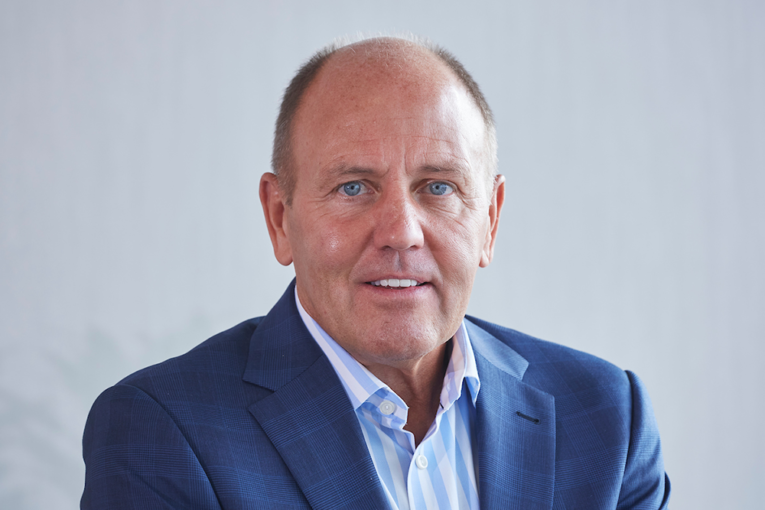
[ad_1]
Grant Fagerheim, one of the Canadian oilpatch’s biggest dealmakers, is nearing the end of a transformative year at Whitecap Resources Inc., where he shepherded a blockbuster acquisition that promises to make the company a dominant player in the trillion-dollar Montney oil and gas play in northern Alberta and British Columbia.
Fagerheim’s decision to snap up XTO Energy Canada ULC from joint owners Imperial Oil Ltd. and ExxonMobil Corp. for $1.88 billion in June gave Whitecap an additional 2,000 wells in the lucrative Montney and Duvernay resource regions, extending its holdings to 20 years’ worth of inventory. It was a monumental move, but one the market punished him for, at least temporarily.
Whitecap’s share price has lagged its peers this past year, having gained 31.4 per cent as of Tuesday’s close, compared to its peers that are averaging increases exceeding 40 per cent in some cases.
Fagerheim attributes the difference, in part, to Whitecap’s decision to defer its shareholder-return strategy to focus on debt repayment even though investors are increasingly demanding companies give them larger returns.
“When we announced the XTO acquisition, one of the drawbacks was going to be that some shareholders just want higher dividends right away, return on capital right away,” he said. “But if I don’t have an inventory to continue growing into the future, they can get dividends right away, but I can’t run a long-term name.”
Some of the company’s staunchest critics have recently changed their tune after Fagerheim’s latest move: selling $419-million worth of Whitecap’s non-core assets in Saskatchewan, which is helping the company reach its preliminary debt target six months sooner than expected and triggering a 32-per-cent boost to its monthly dividend.
“One of the most important attributes of any (explorer and producer) company is its ability to recognize, pivot and improve its land/inventory base,” Raymond James analyst Jeremy McCrea said in a research note on Dec. 19, the day the sale was announced. “From that point, we can’t think of another company that has better upgraded its inventory over the last several years.”
But dealmaking isn’t Fagerheim’s only preoccupation these days. The veteran oilpatch executive, who also serves on the board of the Fraser Institute think-tank, is closely watching government policy changes targeting greenhouse-gas emissions from oil and gas with growing trepidation for the competitiveness of the Canadian sector.
“Ultimately, if there aren’t return economics on your investments for decarbonization, it doesn’t happen,” he said, adding Canada is now “dragging behind” the United States on carbon capture incentives. “We love making ourselves non-competitive.”
Fagerheim said Justin Trudeau’s government made a mistake in excluding carbon sequestration projects involving enhanced oil recovery (EOR) from its current suite of carbon capture utilization and storage incentives. EOR is a process that uses captured CO2 to flush out difficult-to-recover oil before being permanently stored underground.
The United States has forged ahead with generous tax credits applicable to EOR that will make carbon capture projects significantly more economical for its oil and gas producers, prompting predictions of quicker large-scale deployment of those technologies south of the border.
Whitecap currently sequesters approximately two million tonnes of CO2 per year, primarily underground at its Weyburn project in southeast Saskatchewan, where CO2 is used to enhance oil production from two crude oil reservoirs. Fagerheim said the company is also advancing work on four other carbon hubs in Alberta and Saskatchewan.
“We’re on this path, we’re trying to do our piece and we’re actually spending capital on all these projects,” he said.
Fagerheim also said he is pleased with the stances that Prairie premiers Danielle Smith and Scott Moe have taken in forcefully asserting provincial jurisdiction over energy and natural resource development. He said he disagrees with critics of Smith’s controversial Sovereignty Act who have argued the legislation will create political uncertainty that could be damaging for business investment.
“It’s not pitting ourselves against any other province. But it is an opportunity to influence the decisions within our own province: how (we) spend our capital, where we want to go, how (we) produce our resources,” he said. “Today, the policies under the federal government have been extremely divisive, pitting different regions against one another. That has to stop.”
• Email: [email protected] | Twitter: mpotkins
If you liked this story, sign up for more in the FP Energy newsletter.
[ad_2]
You can read more of the news on source
